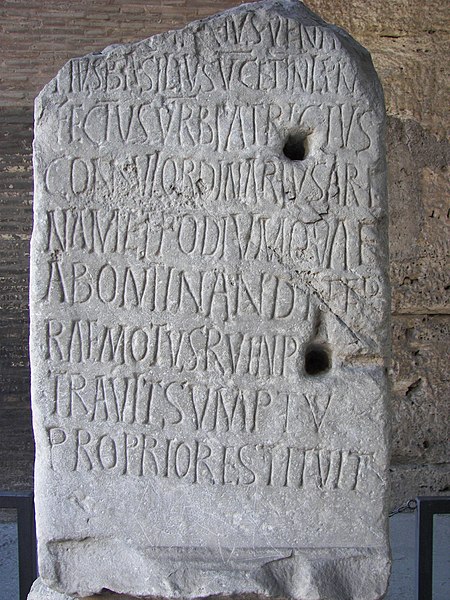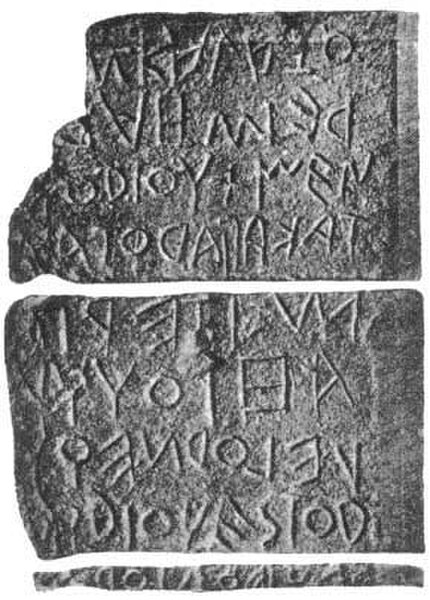Acta Apostolicae Sedis, often cited as AAS, is the official gazette of the Holy See, appearing about twelve times a year. It was established by Pope Pius X on 29 September 1908 with the decree Promulgandi Pontificias Constitutiones, and publication began in January 1909. It contains all the principal decrees, encyclical letters, decisions of Roman congregations, and notices of ecclesiastical appointments. The laws contained in it are to be considered promulgated when published, and effective three months from date of issue, unless a shorter or longer time is specified in the law.
Cover page and leaf of Vol. 1, No. 1 of the Acta Apostolicae Sedis (1909)
Latin is a classical language belonging to the Italic branch of the Indo-European languages. Considered a dead language, Latin was originally spoken in Latium, the lower Tiber area around Rome. Through the expansion of the Roman Republic it became the dominant language in the Italian Peninsula and subsequently throughout the Roman Empire. Even after the fall of Western Rome, Latin remained the common language of international communication, science, scholarship and academia in Europe until well into the early 19th century, when regional vernaculars supplanted it in common academic and political usage—including its own descendants, the Romance languages. For most of the time it was used, it would be considered a dead language in the modern linguistic definition; that is, it lacked native speakers, despite being used extensively and actively.
Latin inscription on a stone inside the Colosseum in Rome, Italy
The Lapis Niger, probably the oldest extant Latin inscription, from Rome, c. 600 BC during the semi-legendary Roman Kingdom
The Latin Malmesbury Bible from 1407
The signs at Wallsend Metro station are in English and Latin, as a tribute to Wallsend's role as one of the outposts of the Roman Empire, as the eastern end of Hadrian's Wall (hence the name) at Segedunum.





